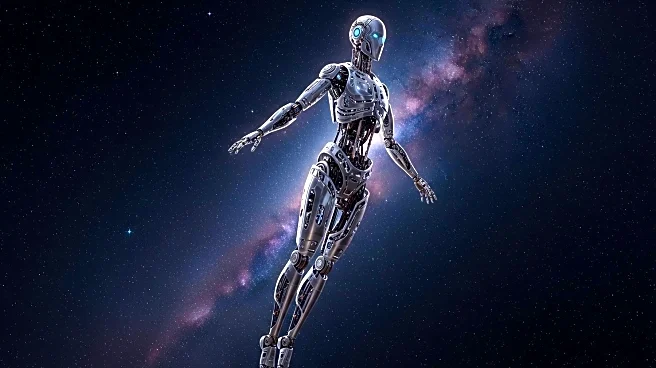What's Happening?
Icarus Robotics, a New York-based startup, has raised $6.1 million in seed funding to develop AI-controlled worker drones for future commercial space stations. These robots are designed to handle tasks such as cargo handling, equipment checks, and scientific experiments, allowing astronauts to focus on more critical scientific work. Founded in 2024 by Jamie Palmer and Ethan Barajas, Icarus aims to address the economic inefficiencies of astronauts' workloads by automating mundane tasks. The company plans to send a prototype robot to the ISS for a year-long residency to build a dataset for training AI models.
Why It's Important?
The deployment of AI robots in space could revolutionize the way tasks are managed on space stations, enhancing efficiency and reducing costs. By automating routine tasks, astronauts can dedicate more time to scientific research and discovery. This approach aligns with the commercial space industry's focus on maximizing revenue-generating activities. Icarus's initiative reflects the growing trend of integrating AI and robotics into space operations, potentially transforming the economics of space missions and expanding the capabilities of commercial space stations.
What's Next?
Icarus plans to expand its AI-powered robots to multiple commercial space stations, including those with short crewed flights. The company envisions scenarios where robots work alongside astronauts and continue operations when stations are uncrewed. Future iterations may include capabilities for tasks in the vacuum of space and on the surfaces of the Moon and Mars. The success of Icarus's initiative will depend on the ability to scale up production and integrate AI technology into space operations effectively.









